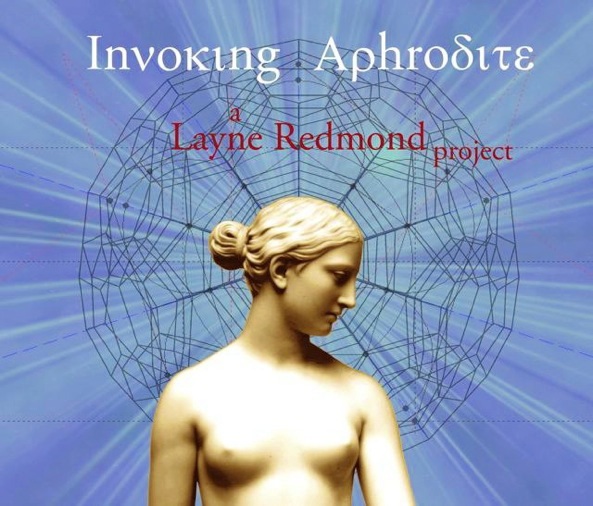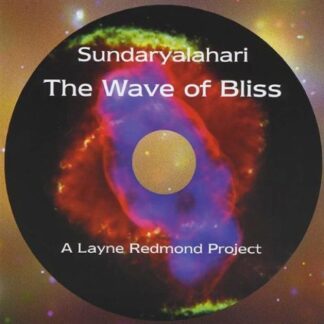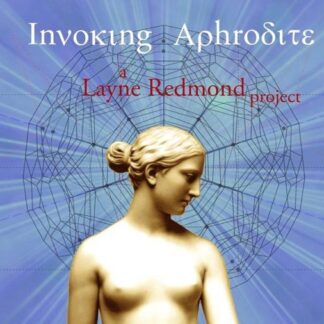Description
Features works of Sappho, the Pythia Priestesses of Delphi, the Epitaph of Seikilos (the oldest notated musical composition found to date), and The Hymn to The Muse, written by Mesomedes of Crete in the 2nd c. CE.
Invoking Aphrodite is dedicated to Ms. Jacqueline Karageorghis,the great scholar of Cypriot Aphrodite; Evie Lanitis, whose devotion and support first brought me to Cyprus to teach the frame drum; Marina Mouyiasi and the wonderful women of MA•GAIA, who found my book, When The Drummers Were Women, and were inspired to bring the frame drumming tradition of ancient Cyprus back to life.
[below styling probably needs discussing]
Invoking Aphrodite
By Sappho, 7th c. BCE poet, composer and priestess of Aphrodite.
Leave Crete, Come here, Come to the holy place
Come to the sacred grove.
Your altars are smoking with incense.
Cold water sings through the fruited trees,
Everything is shaded under the bower of roses
And from the shimmering radiance of leaves,
an enchanted sleep drops down.
Here is a meadow of spring flowers where horses graze
and a soft wind gently breaths.
Come Aphrodite, pour your nectar into our golden cups
In grace make the libation, bring your Melissaes to life.
The Seikilos Epitaph
The oldest surviving complete notated musical composition, from a Greek tombstone, 2nd c. BCE. Written by Seikilos for his wife Euterpe.
I am an image in stone.
I was put here by Seikilos
Where I will remain forever,
A symbol of deathless remembrance.
As long as you live, shine, be radiant!
Let nothing grieve you beyond measure.
For your life is only too short
And time will call for you.
The Final Delphic Oracle
The Delphic sanctuary, whose origins date to prehistoric times and the worship of the Great Goddess, Gaia, was the site of the most famous Greek oracle. The Pythia was the title of the priestess who functioned as the medium through which Apollo spoke. This important position was filled by a series of women from at least 1400 BCE to CE 393, and exerted considerable influence throughout the Greek world. The most well known of the Pythia’s sayings was Know Thyself.
In 389 CE the Roman Emperor Theodosius I ordered all pagan temples destroyed and closed.
The last Pythia declared to the Emperor in 393 CE:
Go tell the king the temple has fallen to pieces.
Apollo dwells here no more.
There is no more oracular laurel.
No talking spring.
And the voice of the water has been silenced.
All is finished.
Hymn to the Muse
Written and notated by Mesomedes of Crete, 2nd c. CE.
O Muse, precious one, sing to me,
Thy inspiration a prelude for my own song.
Send a breeze from your groves,
Vibrate my heart and mind,
O Wise Kalliopeia, leader of the golden Muses,
And you too, wise initiator into the mysteries,
Apollo, Son of Leto, be at hand, blessing me.
The Call
The calling of some of Aphrodite’s ancient epithets:
Akidalia, Akraia, Alilat, Amathousia, Ambologera,
Anadyomene, Antheia, Apatouria, Aphakitis, Apotrophia,
Arakunthia, Areia, Argynnis, Kallipugos, Knidia, Kolias,
Kyprogeneia, Kuthereia, Despoina, Dionysia, Erukiane,
Gamelia, Genetullia, Hekaerge, Idalia, Limeniatis, Mekhanitis,
Melainis, Melinaea, Migonitis, Morpho, Nikephoros, Pandemos,
Paphia, Peitho, Syria Dea, Ourania, Zephuritis, Zerynthia
Ocean of Blessings
A fragment of a Sappho poem, 7th c. BCE:
You may not remember but someone in some future time, will.




